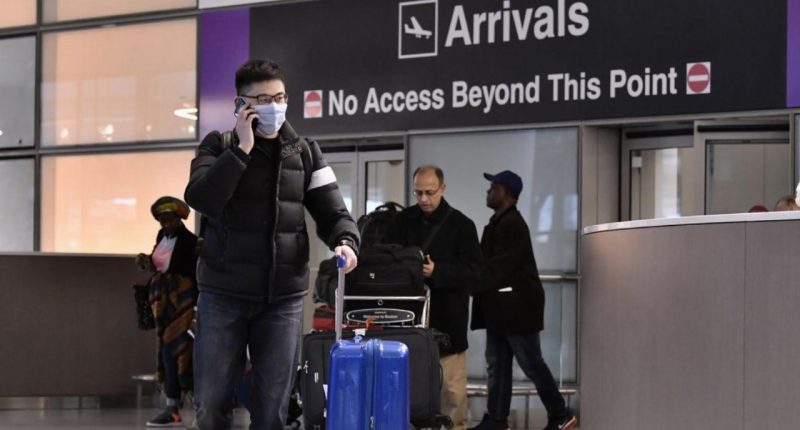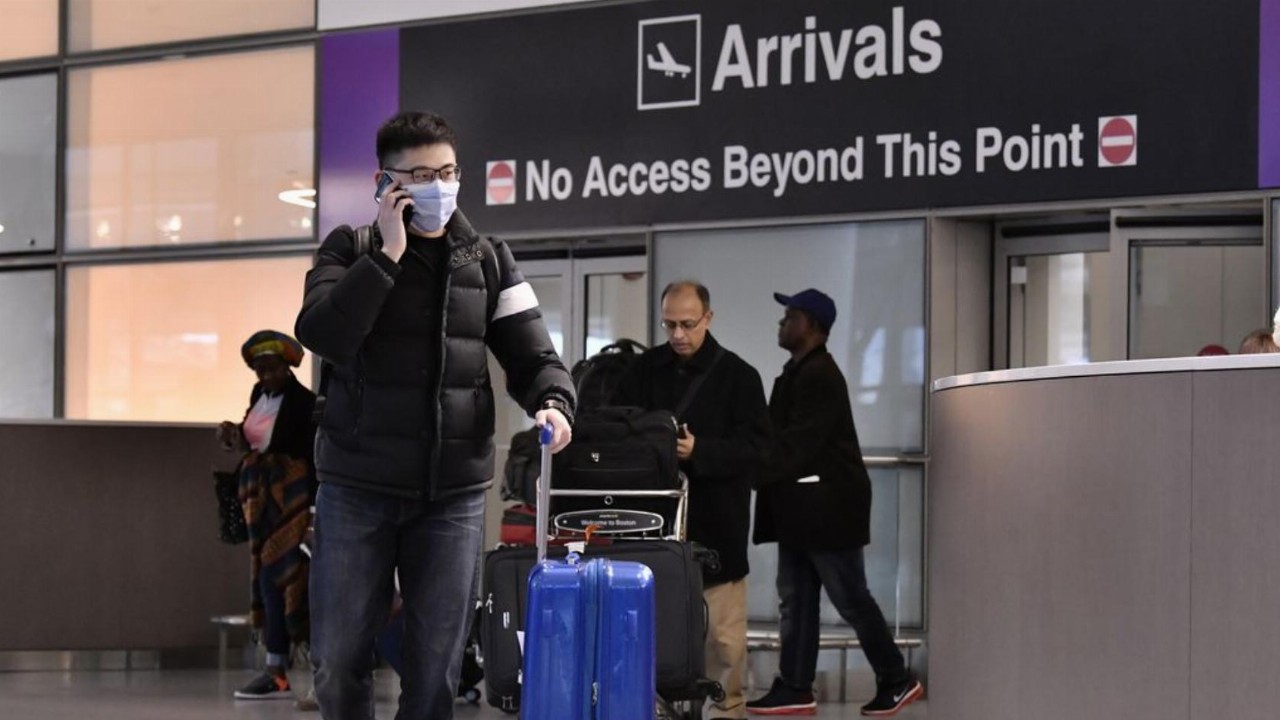- U.S. and China relations are continuing to develop with new travel bans introduced by the States this week
- Along with Visa restrictions for certain employees from Chinese tech companies, the Trump administration is considering a sweeping ban on members of the Chinese Communist Party
- The presidential proclamation is allegedly still in draft form
- The new travel bans come soon after China imposed some major sedition laws on Hong Kong to tighten its grip of control of the territory
- President Donald Trump and U.S. Secretary of State Mike Pompeo have blasted the laws as an infringement on human rights
- China has not yet responded to the latest travel bans and restrictions
With tensions between the United States and China still on the rise, the Trump administration is now weighing up a sweeping travel ban on members of the Chinese Communist Party.
The New York Times reported the presidential proclamation is still in draft form but could also authorise the United States to revoke the visas of party members and their families living in the U.S., effectively expelling them from the country,
Of course, with over 90 million people part of the Chinese Communist Party (CCP), the ban could affect a large chunk of potential travellers.
Only a handful of CCP members have a hand in drafting legislation and lawmaking, but the travel bans allegedly sweep across all party members.
Travel and tech
Revealed hand-in-hand with the CCP member ban is a string of visa restrictions on employees of Chinese tech companies, such as telecommunications giant Huawei.
U.S. Secretary of State Mike Pompeo said in a statement yesterday the restrictions will be imposed on certain employees of tech companies that “provide material support to regimes engaging in human rights abuses globally.”
“Companies impacted by today’s action include Huawei, an arm of the CCP’s surveillance state that censors political dissidents and enables mass internment camps in Xinjiang and the indentured servitude of its population shipped all over China,” Secretary Mike Pompeo said.
The tech employee restrictions were announced a day after the Secretary of State praised the United Kingdom’s decision to ban Huawei from future 5G networks and phase the company’s equipment out from existing networks. The U.K. ban was based on fears that secure information from Huawei tech could be compromised by the CCP.
According to Secretary Pompeo, the U.K. has joined a growing list of companies and carriers refusing to use Huawei 5G tech, including Sweden, Denmark, and Poland, and carriers such as India’s Jio and even Telstra in Australia.
“Countries need to be able to trust that 5G equipment and software will not threaten national security, economic security, privacy, intellectual property, or human rights,” Secretary Pompeo said.
Along with the tech employee visa restrictions came a scathing accusation from Secretary Pompeo.
“Telecommunications companies around the world should consider themselves on notice: If they are doing business with Huawei, they are doing business with human rights abusers.”
U.S. Secretary of State Mike Pompeo, July 2020
Rising tension
The sweeping travel bans come the same week the United States “rejected” China’s claims over the majority of the area in the South China Sea, which has been in dispute by China and surrounding Asian nations for decades.
While the U.S. and China recently had a brief moment of respite from tensions arising from their Trade War, which started in 2018, it seems the relationship between the two superpowers is continuing to bubble.
China’s recent introduction of sedition laws to tighten its grip of control over Hong Kong was met with harsh criticism from the United States and President Trump.
The President announced this week he would be ending the U.S. preferential treatment of Hong Kong and treating the territory “the same as mainland China” in response to the new laws, which the President claim infringe on the autonomy and human rights of people in Hong Kong.
Secretary Pompeo said China’s new “draconian” laws break a 1984 promise to keep Hong Kong free and open until at least 2047.
“Over the past two weeks, the world has watched as the Chinese Communist Party smothers Hong Kong’s freedom,” he said.
How China will respond to President Trump’s latest actions is yet to be seen.







